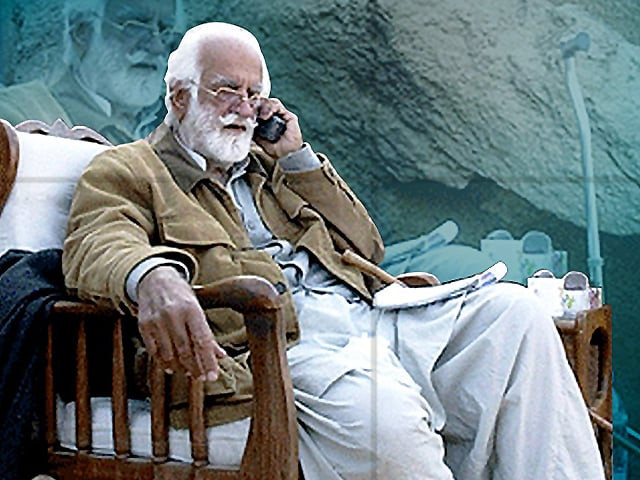Federal cabinet meets in Quetta: Judicial commission to probe Bugti murder
Information minister claims 60% of Aghaz-e-Haqooq-e-Balochistan package implemented.

Federal cabinet meets in Quetta: Judicial commission to probe Bugti murder
At its first-ever meeting in the Balochistan capital on Wednesday, the federal cabinet decided to constitute a judicial commission under the supervision of a Supreme Court judge to probe the murder of Baloch nationalist leader Nawab Akbar Bugti.
The commission, however, was promptly rejected by Bugti’s eldest son Nawabzada Jamil Bugti who said he had no expectations from the incumbent government.
Akbar Bugti was killed during a military operation in 2006.
The decision was taken during the meeting, presided over by Prime Minister Yousaf Raza Gilani, that focused on the implementation of the Aghaz-e-Haqooq-e-Balochistan package.
When asked if the move was an attempt to delay the Balochistan High court orders that sought arrest warrants of the accused nominated in the Bugti murder case, Federal Minister for Information Dr Firdous Ashiq Awan said it is not a conspiracy.
“We are talking about the apex court which is appropriate considering the sensitivity of the case,” she said.
Awan claimed that the government has implemented 60% of the Balochistan package while another 25% will be implemented in the next two months.
She said that the prime minister has lifted the ban on recruitment in government departments while the Establishment Division had indicated 6,700 vacant posts between grades 7 and 20 in different departments of the federal government.
“These posts will be filled up by candidates from Balochistan,” she said, adding that the selection board will conduct the test and interview in Quetta shortly.
Nationalists and missing persons
Prime Minister Gilani said that a committee has been constituted to hold talks with Baloch nationalists and will work in consultation with the governor and the chief minister.
The premier also expressed ‘concern’ over the issue of missing persons and said that a judicial tribunal and a public commission are already looking into the issue.
Foreign forces, hostile agencies
Repeating his mantra, Interior Minister Rehman Malik said that foreign forces and hostile security agencies are involved in creating a law and order situation in Balochistan.
The interior minister claimed that the situation in Balochistan vis-à-vis terrorism-related, ethnic and sectarian killings was “comparably better than in other provinces.” Over the past three years, 134 Punjabi-speaking people have been killed while another 45 have been killed in sectarian violence, he said.
While ruling out involvement of security forces and intelligence agencies, the minister said that 116 bullet-riddled bodes have been recovered in the last two years.
Regarding allegations of harassment by the Frontier Corps (FC) and coast guards personnel, Malik said that the government had abolished 35 FC check posts and curtailed the powers of the coast guards. “The FC will be removed once recruitment in provincial forces, including the police, is completed,” he said.
Published in The Express Tribune, July 14th, 2011.



















COMMENTS
Comments are moderated and generally will be posted if they are on-topic and not abusive.
For more information, please see our Comments FAQ